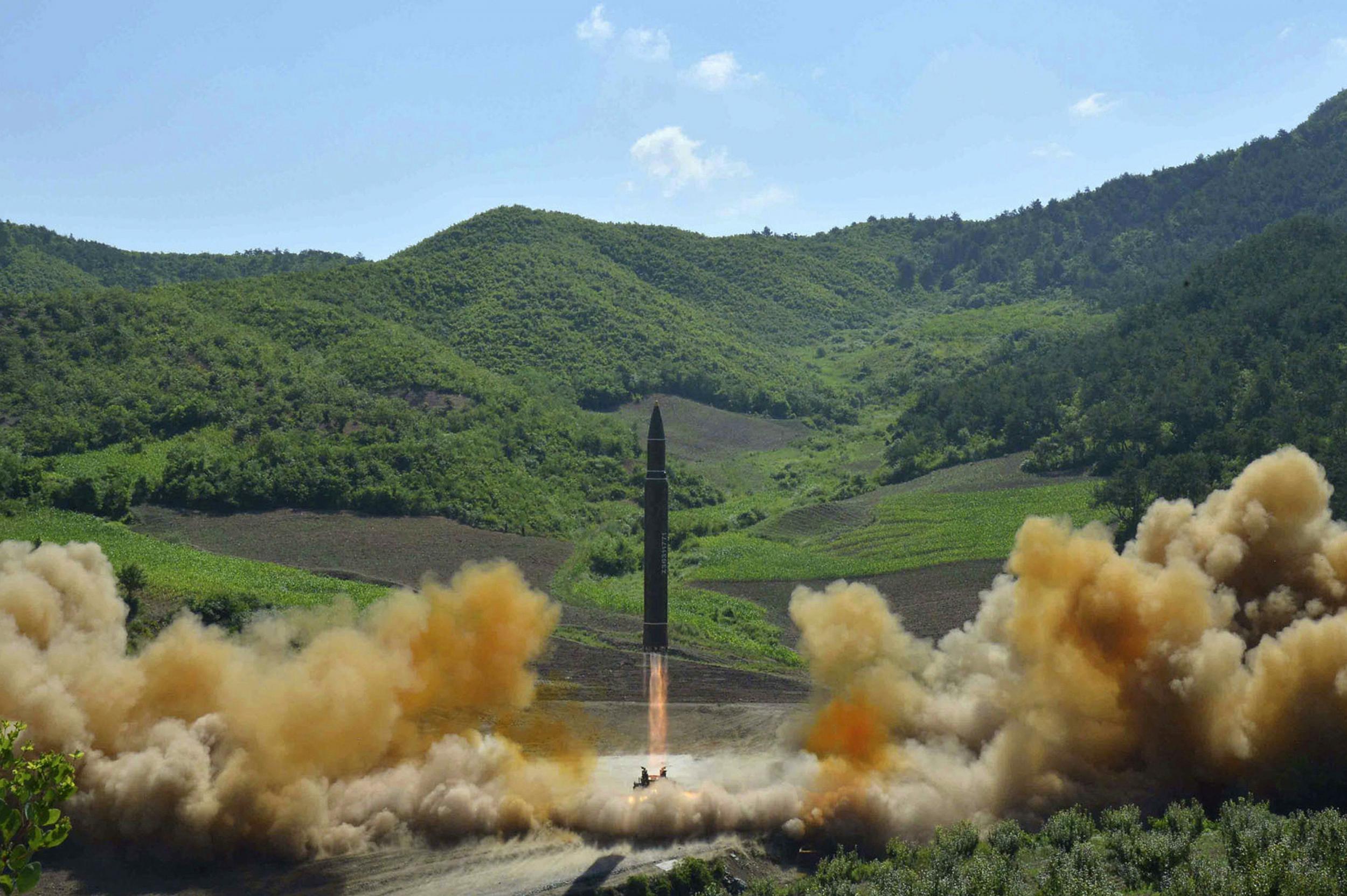North Korea launches 'ICBM' which may have landed within 200 miles of Japan coast
A meeting of the Japanese National Security Council has been called

Your support helps us to tell the story
From reproductive rights to climate change to Big Tech, The Independent is on the ground when the story is developing. Whether it's investigating the financials of Elon Musk's pro-Trump PAC or producing our latest documentary, 'The A Word', which shines a light on the American women fighting for reproductive rights, we know how important it is to parse out the facts from the messaging.
At such a critical moment in US history, we need reporters on the ground. Your donation allows us to keep sending journalists to speak to both sides of the story.
The Independent is trusted by Americans across the entire political spectrum. And unlike many other quality news outlets, we choose not to lock Americans out of our reporting and analysis with paywalls. We believe quality journalism should be available to everyone, paid for by those who can afford it.
Your support makes all the difference.North Korea has fired an an intercontinental ballistic missile which may have landed in Japan's exclusive economic zone (EEZ), according to the country's Prime Minister Shinzo Abe.
The zone reaches 200 nautical miles from the country's coast. Mr Abe has called an emergency meeting of the National Security Council.
"I have received information that North Korea once again conducted a missile firing," Mr Abe said. "We will immediately analyze information and do our utmost to protect the safety of the Japanese people."
He called on the US, South Korea, Russia and China to increase pressure on the secretive state over its missile launches, which have defied international rulings.
Chief Cabinet Secretary Yoshihide Suga said Japan "absolutely cannot tolerate" repeated provocations from North Korea, also known as the DPRK.
Soon after reports of the launch emerged from Japan, the Pentagon and South Korean military officials confirmed they detected a ballistic missile launch from North Korea.
On Friday evening, Pentagon spokesman Captain Jeff Davis said: "The US Department of Defence detected and tracked a single North Korea missile launch today. We assess that this missile was an intercontinental ballistic missile, as had been expected.
"The missile was launched from Mupyong-ni and travelled about 1,000km before splashing down in the Sea of Japan. We are working with our interagency partners on a more detailed assessment.
"The North American Aerospace Defence Command (NORAD) determined the missile launch from North Korea did not pose a threat to North America.
"Our commitment to the defence of our allies, including the Republic of Korea and Japan, in the face of these threats, remains ironclad. We are prepared to defend ourselves and our allies from any attack or provocation."
Arms control expert Jeffrey Lewis said the lengthy flight time meant the missile was likely a long-range intercontinental ballistic missile (ICBM), potentially capable of travelling 10,000km and hitting a target in the US.
According to Yonhap news agency, South Korean military officials said the missile was launched from Jagang Province, in the north of the DPRK.
South Korea has also called a national security meeting.
The night time launch of the ICBM was unusual, as most take place around dawn. Dr. John Nilsson-Wright, senior research fellow on Chatham House's Asia programme, told The Independent this could have been to demonstrate the military was capable of launching in varying conditions.
Alternatively, Dr Nilsson-Wright said, "maybe the element of surprise is part of the reason why they wanted to do this".
He added: "I think they've shown that they have the capability, the increased technical sophistication, and I think there will be a lot of anxiety in Seoul and Tokyo."
It comes just one day after the 64th anniversary of the end of the Korean War -- known as Victory Day in the North.
Intelligence officials in both the US and South Korea feared the DPRK could launch a missile to mark the event.
North Korea fired what was believed to be its first ICBM earlier this month.
North Korea, led by unpredictable ruler Kim Jong-un, has fired missiles into the EEZ several times before.
International tensions have been mounting over the nuclear ambitions of North Korea in recent months, and Donald Trump has threatened to "take care" of the unstable situation.
Just yesterday, a senior US military official warned the DPRK’s weapons technology was improving faster than expected.
"North Korea is extremely dangerous and more dangerous as the weeks go by,” said General Mark Milley, chief of staff of the Army.
Join our commenting forum
Join thought-provoking conversations, follow other Independent readers and see their replies
Comments